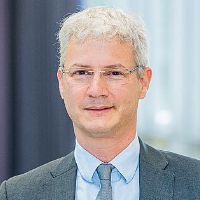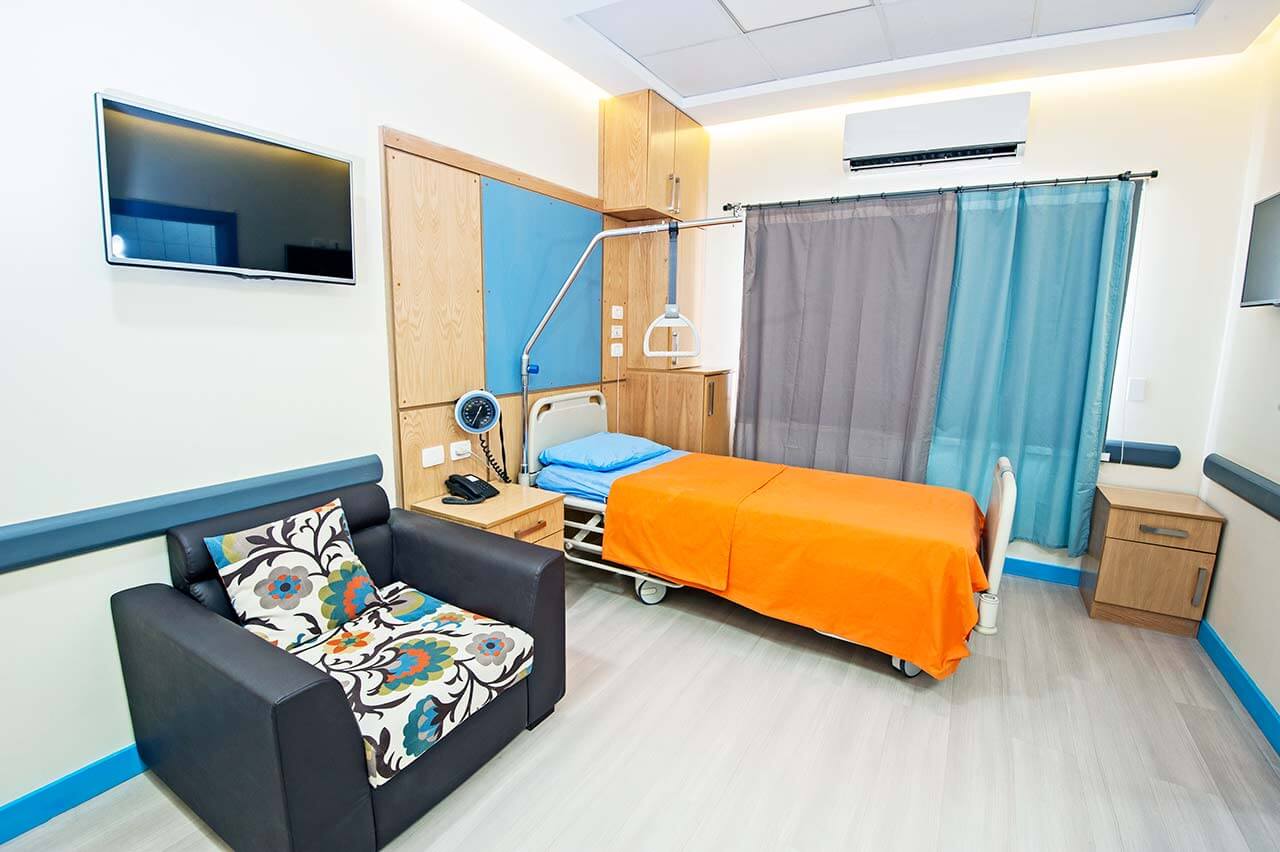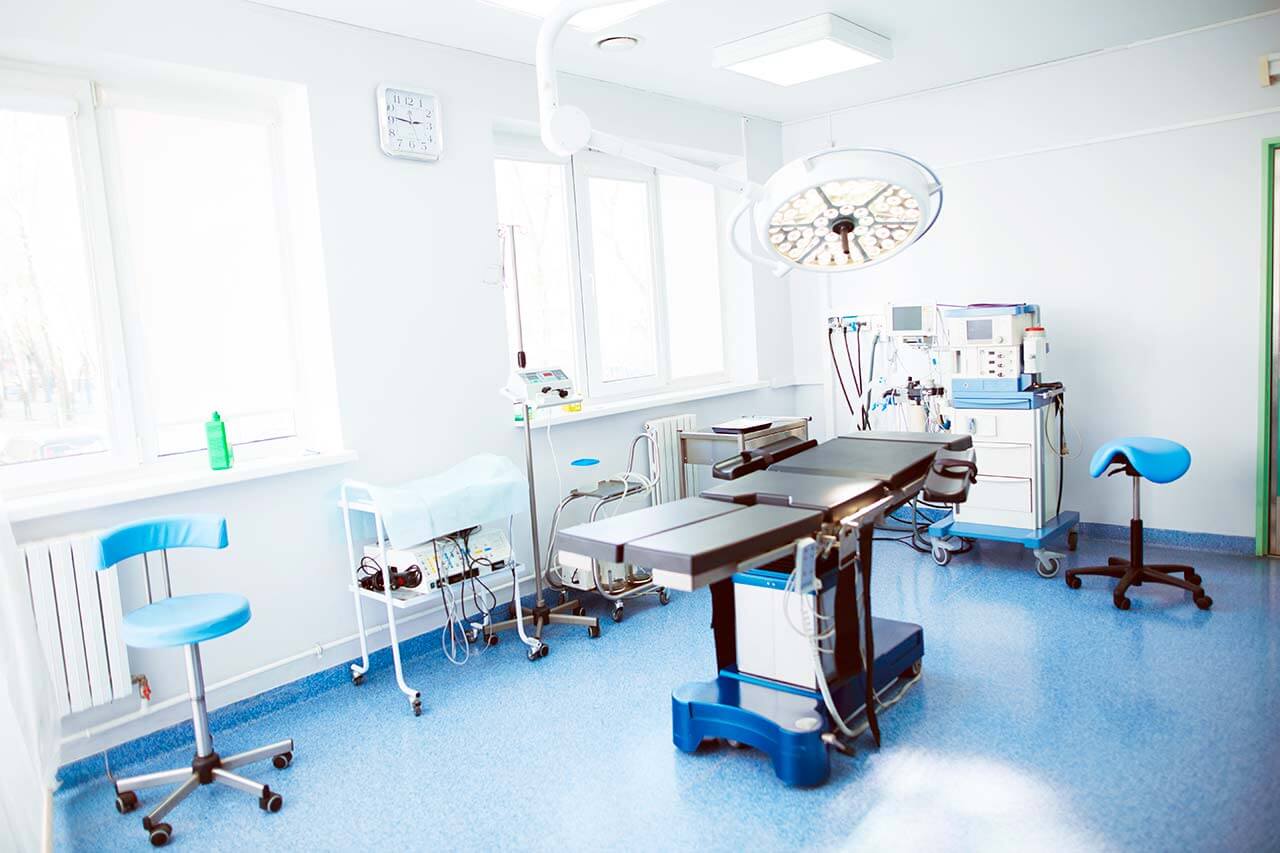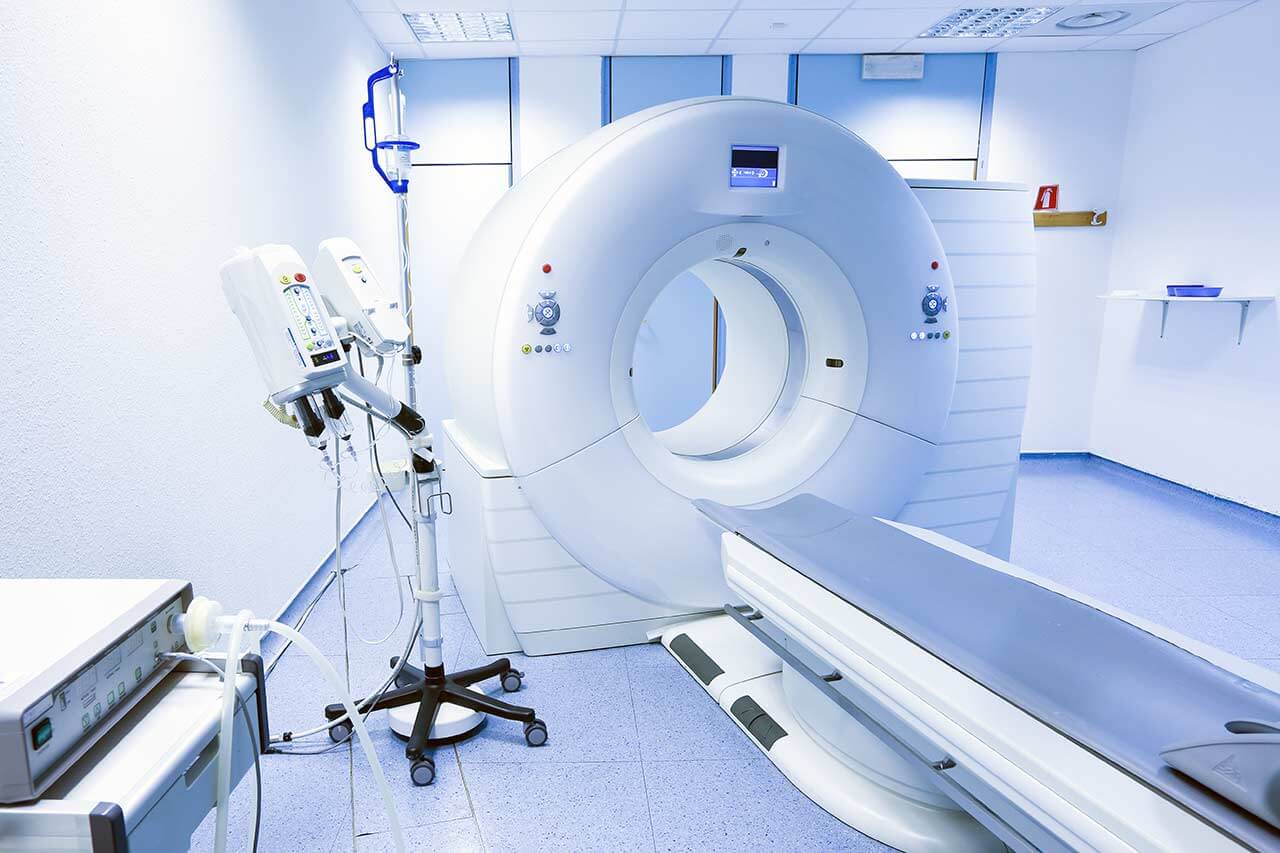
About the Department of Cardiology and Angiology at Municipal Hospital Karlsruhe
The Department of Cardiology and Angiology at the Municipal Hospital Karlsruhe offers all the options of modern medicine for the diagnostics and treatment of a wide range of diseases of the cardiovascular system. The department's clinical practice is focused on the treatment of myocardial infarction, coronary heart disease, heart failure, heart valve pathologies, myocarditis, arrhythmias, as well as diseases of the arteries, veins and lymphatic vessels. The department has a progressive Chest Pain Unit (certified by the German Society of Cardiology, DGK), which operates around the clock and provides emergency care to patients with acute coronary syndrome. In addition, the department's cardiologists have 4 cardiac catheterization laboratories, in which more than 4,000 diagnostic and therapeutic procedures are performed annually. The department demonstrates excellent results in the field of cardiac ablation, implantation of pacemakers and defibrillators. The medical facility offers 120 beds for the accommodation of its patients. More than 6,500 patients are treated here annually. The department is headed by Prof. Dr. med. Julian Widder.
The department's doctors are convinced that the key to successful treatment is accurate diagnostics, which allows them to reliably detect the slightest pathological changes. The department's diagnostic rooms have the necessary equipment for cardiac ultrasound examinations (echocardiography), including transesophageal echocardiography and stress echocardiography, 3D heart ultrasound, as well as electrocardiography, Holter monitoring, 24-hour blood pressure monitoring, etc. Based on the diagnostic results, doctors make a diagnosis and determine further therapeutic measures.
The department's specialists quite often admit patients with heart rhythm disturbances (arrhythmias). Atrial fibrillation is one of the most common and dangerous types of arrhythmias. The pathology is characterized by a rapid irregular atrial rhythm, which increases the risk of stroke, heart failure and other life-threatening complications. To combat the pathology, drug therapy and interventional procedures can be used. Catheter ablation with pulmonary vein isolation is the most effective and widely used treatment for atrial fibrillation. The department's specialists use the most advanced types of ablation, such as radiofrequency catheter ablation and cryoablation.
Of particular interest to the department's cardiologists is the treatment of acute coronary syndrome (ACS) within a specialized Chest Pain Unit. The patients with suspected ACS undergo the necessary examinations and, if the diagnosis is confirmed, optimal therapeutic measures are applied. The department's doctors most often resort to percutaneous transluminal coronary angioplasty or stent implantation. The Chest Pain Unit is open 24/7.
The department's cardiologists also successfully perform interventions for the implantation of pacemakers and defibrillators. The doctors implant single-, dual- and triple-chamber systems. The department annually performs more than 750 interventional procedures of this kind, while about 100 of them are for the implantation of three-chamber systems – cardiac resynchronization therapy. Almost always, interventions of this kind are performed with a combination of regional anesthesia and short intravenous anesthesia, but without general anesthesia. The department also offers a cardiac contractility modulation procedure, which is an innovative method for heart failure treatment.
The department's competence also includes the provision of medical care to the patients with diseases of the arteries, veins and lymphatic vessels. The key focus is on conservative and interventional treatment of peripheral arterial occlusive disease, pulmonary embolism, deep vein thrombosis, chronic non-healing wounds, aortic diseases and other pathologies.
The department specializes in the diagnostics and treatment of the following diseases:
- Cardiology
- Myocardial infarction
- Coronary heart disease
- Heart rhythm disturbances
- Heart valve diseases
- Heart failure
- Myocarditis
- Acute coronary syndrome
- Arterial hypertension caused by heart pathologies
- Angiology
- Lower extremity peripheral arterial occlusive disease
- Pulmonary embolism
- Deep vein thrombosis
- Raynaud's syndrome
- Aortic diseases, in particular those affecting the ascending aorta
- Genetic syndromes (for example, Marfan syndrome)
- Vasculitis
- Diabetic foot syndrome
- Rare coagulation disorders
- Other diseases
The department's diagnostic options include:
- Diagnostics of heart diseases
- Echocardiography
- Transesophageal echocardiography
- Transthoracic echocardiography
- Stress echocardiography
- Imaging techniques with optimized image quality (harmonic imaging)
- Pulsed wave Doppler ultrasonography
- Continuous wave Doppler
- Modern 3D imaging methods
- Electrophysiological studies for diagnosing arrhythmias, including 3D mapping and navigation systems (Carto 3TM, CartoMergeTM, Ensite NavXTM Fusion, Bard ElektroViewTM)
- Cartography and the application of event recorders
- Laboratory tests
- Echocardiography
- Diagnostics of vascular diseases
- Ultrasound scans
- Capillary microscopy
- Angiography
- Laboratory tests
- Other diagnostic services
The department specializes in the following therapeutic measures:
- Cardiology
- Drug therapy
- Treatment of cardiac arrhythmias with electrical cardioversion
- Interventional catheter procedures
- Catheter ablation for the treatment of arrhythmias: radiofrequency ablation and cryoablation
- Implantation of pacemakers and defibrillators, including cardiac resynchronization therapy
- Cardiac contractility modulation for the treatment of heart failure
- Complex catheter-based interventions for circulatory disorders of the heart
- Heart valve replacement using catheter-based techniques (for example, transcatheter aortic valve implantation)
- MitraClip technique for the treatment of mitral valve pathologies
- Internal intensive care for
- Acute myocardial infarction
- Severe heart failure
- Dangerous cardiac arrhythmias
- Severe mitral insufficiency with the threat of pulmonary edema
- Life-threatening lesions of the internal organs
- Severe infections in immunocompromised patients, such as those with leukemia or after chemotherapy
- Angiology
- Conservative treatment methods: drug therapy (most often with anticoagulants), compression therapy, etc.
- Other medical services
Curriculum vitae
Prof. Dr. med. Julian Widder has been heading the Department of Cardiology and Angiology at the Municipal Hospital Karlsruhe since December 9, 2021. The specialist became the successor of Prof. Klaus Schmitt, who worked as the Head Physician of this department for more than 15 years.
Prof. Widder received his medical education at the Heidelberg University (1994-2001), where he also defended his thesis in 2001. This was followed by his training for board certification at the University Hospital Wuerzburg, after which the doctor went on a three-year research internship at Emory University in Atlanta, USA. In 2009, Prof. Julian Widder completed his professional certification in Internal Medicine with a focus on Cardiology, and a habilitation procedure in 2010. In 2010, the doctor held the position of a Senior Physician in the Department of Cardiology and Angiology at the Hannover Medical School, where in 2013 he received an additional qualification in Internal Intensive Care. Prior to joining the Municipal Hospital Karlsruhe, he was a Managing Senior Physician and Head of the Section of Interventional Cardiology in the Department of Cardiology and Angiology at the Hannover Medical School.
Prof. Widder is an author of numerous scientific articles and publications, as well as a member of various scientific societies and associations, including the German Society of Cardiology (DGK). In addition, the specialist is an expert of the German Society of Cardiology (DGK) for the certification of the Centers for Transcatheter Aortic Valve Implantation (TAVI) and the Centers for Mitral Valve Diseases.
Photo of the doctor: (c) Städtische Klinikum Karlsruhe





